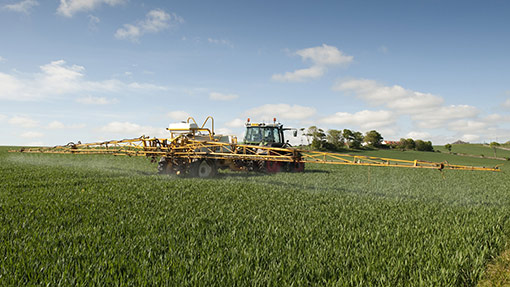EU azole review threatens fungicides’ future

The European Commission has published a roadmap for identifying chemicals with endocrine-disrupting properties, which threatens the future of one of the most popular group of cereal fungicides.
The report, published this week, sets out the timetable the commission is working towards to define endocrine-disrupting chemicals (EDCs), which have been linked to a range of serious illnesses.
But any decision to classify endocrine-disrupting chemicals could have a massive effect on international trade and the marketing of some widely used pesticides, such as azole fungicides, and farmers’ ability to use them, the NFU has warned.
Read also: EU triazole threat could cause disease dilemma
Scientists say chemicals with endocrine disruptors impact the hormone system of animals and humans and cause cancers, thyroid problems, obesity, infertility, lowered IQ and autism.
Although provisions of EDCs are in force in some EU legislation, no formal criteria has been established internationally or at EU level for identifying these chemicals.
The World Health Organisation (WHO) has repeatedly warned of the dangers of EDCs. In 2002, it defined EDCs as “an exogenous substance or mixture that alters function(s) of the endocrine system and consequently causes adverse health effects in an intact organism, or its progeny, or (sub) populations”.
The commission’s document aims to address calls from the EU Council and parliament to establish scientific criteria to identify EDCs.
The roadmap sets out four policy options, including three approaches for regulating EDCs, or no change in the existing laws.
A detailed assessment of the options for setting criteria will begin later this year, followed by a public consultation.
The NFU said it was “very concerned” that the commission was seeking to define EDCs and warned that it could rob farmers of important crop protection products.
Guy Gagen, NFU chief arable adviser, said: “It’s not going to be easy to put it into legislation. It’s something that no one else has managed to define before.
“The broad definition that they have been talking about includes a wide range of products. This includes the triazole group of fungicides, which contains some very successful products which are still very robust against diseases we face in the UK.
“We have been working with the levy board, the government and the CRD to try and get to the bottom of what products the Commission could include in their proposed definition.
“We have been looking at how to boost wheat yields by 2020-30, but this sort of regulation will halve them.”
